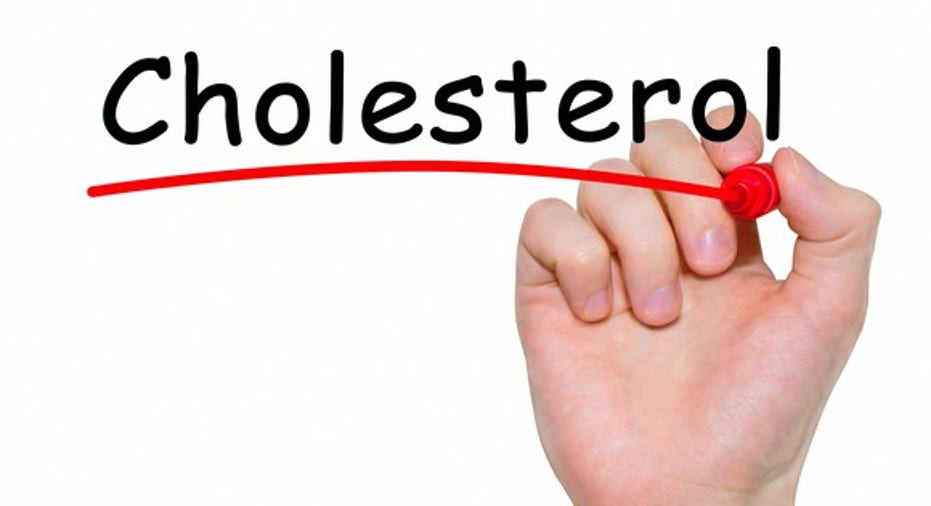The 5 Best Dividend Stocks in Cholesterol Drugs

There's good news, bad news, and more good news about high cholesterol levels. The first good news is that the percentage of Americans with high cholesterol is falling. The bad news is that over 73 million Americans still have high "bad" cholesterol levels.
What's the other piece of good news? Several of the top companies that make the drugs that have helped reduce cholesterol levels offer really attractive dividends.
Amgen (NASDAQ: AMGN), AstraZeneca (NYSE: AZN), Novartis (NYSE: NVS), Pfizer (NYSE: PFE), and Sanofi (NYSE: SNY) all compete in the cholesterol-drug market. And they all boast solid dividends. Here's how they compare.
Image source: Getty Images.
Amgen
Amgen's cholesterol drug Repatha won U.S. Food and Drug Administration (FDA) approval in 2015. Despite great expectations for the drug, however, Repatha generated revenue of only $141 million last year -- less than 1% of the biotech's total revenue.
The problem is that payers have been reluctant to open their purse strings for the high-priced PCSK9 inhibitor. However, Amgen announced results from a cardiovascular-outcomes study earlier this year that the company hopes will convince payers to be more receptive to Repatha. In addition, Amgen has finalized an agreement with one health plan to refund the cost of its drug if patients experience a heart attack or stroke while taking Repatha.
While Amgen works to accelerate sales for Repatha, the biotech offers a nice dividend with a current yield of 3.01%. Amgen's dividend also ranks as one of the fastest growing on the market.
AstraZeneca
AstraZeneca rode the success of its cholesterol drug Crestor for quite a while. However, sales for the drug plunged 57% last year, to $1.2 billion, due to generic alternatives.
The drugmaker also has a drug that serves an adjacent market. Epanova won FDA approval in 2014 for helping reduce very high triglyceride levels in adult patients. Many patients with high triglyceride levels also have high cholesterol. AstraZeneca is conducting a cardiovascular-outcomes study for Epanova to help boost sales of the drug.
If you're looking for a really high dividend yield, AstraZeneca's 5.6% yield could be right up your alley. Although the company currently spends slightly more to fund its dividend program than it makes in profit, AstraZeneca could be in store for decent earnings growth in the future that should keep the dividends flowing.
Novartis
Novartis' cholesterol drug Lescol won FDA approval way back in 1993. The Swiss drugmaker lost patent exclusivity for the drug in 2011. While Lescol is still marketed by Novartis, the company doesn't even report the sales for the drug these days.
Are there any potential cholesterol drugs on the way from Novartis? Nope. Although the company boasts one of the strongest pipelines among big drugmakers, Novartis is focused more heavily on its promising cancer drugs.
Novartis' yield of 3.34% is nothing to sneeze at, though. Like AstraZeneca, Novartis has a payout ratio a tad over 100%. However, the company's growth prospects, driven largely by its oncology pipeline candidates, look solid enough that the dividend shouldn't be in jeopardy.
Image source: Getty Images.
Pfizer
Pfizer lays claim to the most successful cholesterol drug of all -- Lipitor. Although Pfizer has lost patent exclusivity for the drug, Lipitor still generated nearly $1.8 billion in sales last year. That was actually a little higher than the prior year despite significant competition from generic rivals.
While Pfizer doesn't have a near-term replacement for Lipitor, the drugmaker hasn't totally given up on increasing its presence in the cholesterol-drug market. Pfizer's pipeline includes an early-stage experimental cholesterol drug, PF-06427878.
The company claims one of the most attractive dividends in the pharmaceutical world, with a yield of 3.99%. Pfizer's story is similar to AstraZeneca and Novartis, though: It's currently paying more in dividends than it earns. That should change in the near term, however, with newer drugs providing solid earnings growth.
Sanofi
Like Amgen, Sanofi markets a new type of cholesterol drug -- in this case, a PCSK9 inhibitor branded as Praluent. Also like Amgen, Sanofi and partner Regeneron haven't experienced huge financial success for their drug.
Sanofi and Regeneron expect to announce results from their cardiovascular-outcomes study for Praluent later this year. Good results could open the door to higher sales. However, the two companies also must fight a lawsuit with Amgen alleging violations of patents held for Repatha.
In the meantime, Sanofi's dividend yield of 3.21% looks inviting. The company's payout ratio of 86% isn't great, but it's not concerning, either.
10 stocks we like better than SanofiWhen investing geniuses David and Tom Gardner have a stock tip, it can pay to listen. After all, the newsletter they have run for over a decade, Motley Fool Stock Advisor, has tripled the market.*
David and Tom just revealed what they believe are the 10 best stocks for investors to buy right now... and Sanofi wasn't one of them! That's right -- they think these 10 stocks are even better buys.
Click here to learn about these picks!
*Stock Advisor returns as of May 1, 2017
Keith Speights owns shares of Pfizer. The Motley Fool has no position in any of the stocks mentioned. The Motley Fool has a disclosure policy.



















